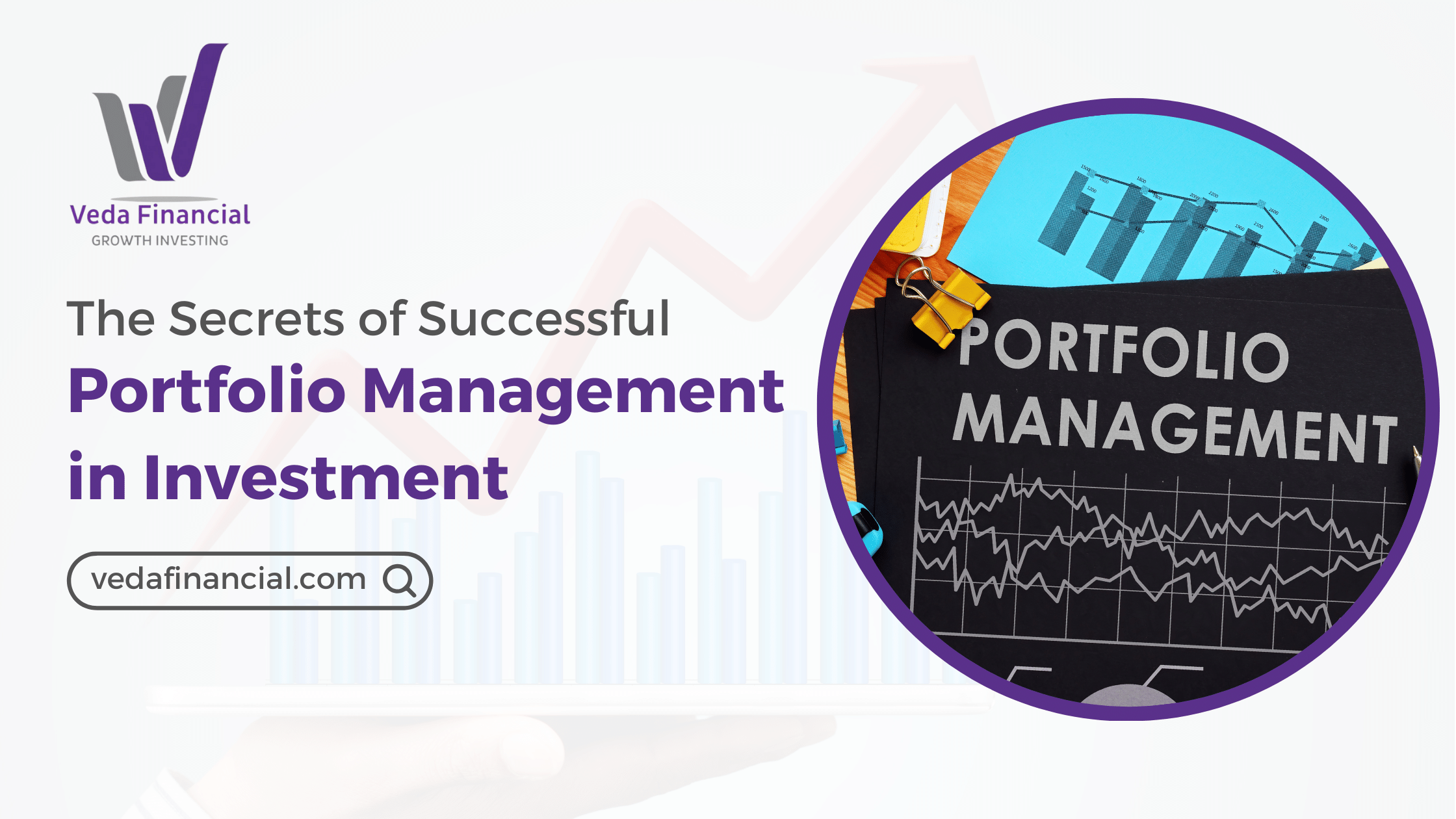Portfolio management is a vital aspect of investment planning, involving strategically managing a collection of investments to achieve specific financial goals. It entails selecting, allocating, and monitoring assets to optimize the balance between risk and return.
A well-managed portfolio is akin to a carefully crafted recipe. Portfolio management strategies combine different assets to create a balanced investment mix. This mix aims to diversify risk, enhance potential returns, and navigate the dynamic market.
Diversification for Risk Mitigation
Strategic diversification is vital in the portfolio management process, spreading investments across multiple assets to mitigate the impact of any single investment’s performance and reduce overall portfolio volatility. This approach avoids the “all eggs in one basket” scenario, reducing risk and enhancing the potential for long-term success.
Additionally, portfolio management involves active oversight, with managers monitoring market conditions, analyzing economic indicators, and conducting thorough research to identify investment opportunities.
Balancing Risk and Return
Ultimately, portfolio management finance seeks to balance risk and return, recognizing that each investor has unique goals, risk tolerance, and time horizons. A portfolio manager aims to maximize returns while managing risk within the investor’s comfort level by tailoring the portfolio to these specific needs.
In personal finance, portfolio management provides investors a competitive edge, enabling them to navigate market fluctuations, capitalize on opportunities, and progress toward their financial objectives.
Portfolio Management Process: Meaning and Explanation
Let’s explore a couple of scenarios to highlight the effectiveness of portfolio management strategies.
Suppose you have a substantial amount to invest. Without portfolio management, there might be a temptation to invest everything in a single stock or asset class. While this could yield significant profits, the risk of substantial losses in that investment can be high.
On the other hand, engaging in a disciplined portfolio management process allows for the optimization of investments across various industries, geographies, and asset classes. By spreading your funds, you mitigate the impact of a single underperforming investment on your entire portfolio. This approach reduces risk and enhances the potential for long-term success.
Additionally, portfolio management extends beyond individual investors. Institutional investors, such as pension funds or insurance companies, also apply portfolio management strategies to optimize their investment portfolios and meet their financial obligations to beneficiaries.
How Does Portfolio Management Finance Work?
- Identify client goals: Understand clients’ needs, both long- and short-term, and define clear financial objectives, considering capital appreciation or stable returns.
- Factor in limitations: Calculate associated risks, liquidity prospects, and expected returns from different asset combinations.
- Develop a robust strategy: Create a strategic and customized asset allocation plan based on investment goals and market behavior.
- Invest in profitable revenues: Make investments in the selected portfolio of securities after a thorough assessment of their fundamentals, liquidity, and credibility.
- Minimize risks: Diversify the investment mix based on budget, timeline, and financial goals.
- Evaluate efficiency: Monitor and analyze the portfolio’s risk-to-return ratio to determine its effectiveness.
- Rebalance the composition: Revise the portfolio based on current market conditions to maximize earnings.
How Does Portfolio Management Help Investors?
Active ortfolio management is primarily designed to effectively manage risk. Diversifying investments across various asset classes, industries, and regions mitigates vulnerability to market fluctuations. This diversification is a buffer against the adverse effects of underperforming investments on the overall portfolio.
Maximizing Returns:
Portfolio management firms aim to optimize investment returns by identifying and capitalizing on opportunities. Skilled portfolio managers analyze market trends, research, and employ strategies to enhance portfolio performance. They can adeptly seize favorable opportunities, increasing the potential for higher returns.
Long-Term Perspective:
Successful investing demands a long-term perspective, aligning investments with financial objectives and time horizons. Through continuous monitoring and adjustment, portfolio management ensures that the portfolio evolves with changing needs and market conditions. This approach focuses on long-term objectives, avoiding short-term market noise or emotional decision-making.
Expertise and Knowledge:
Portfolio managers contribute valuable expertise and in-depth market knowledge. Their awareness of market changes, economic conditions, and industry dynamics enables them to make informed investment decisions, leveraging their experience for your benefit.
Time Efficiency:
Portfolio management, being time-consuming with its requirements for ongoing research and decision-making, can be delegated to a service. This frees up your time for other priorities and ensures that your investments are competently managed.
What Factors Contribute to Portfolio Success?
After establishing the initial strategy, here are key areas to focus on:
Asset Allocation:
This involves determining how assets are distributed across various investments and considering risk tolerance. A proficient portfolio manager guides clients in making informed investment decisions, factoring in goals, investment horizon, liquidity needs, and other factors, while recommending appropriate risk levels.
Diversification:
It means avoiding the “all eggs in one basket” scenario. A skilled portfolio manager emphasizes strategic diversification to safeguard the portfolio from the impact of a single underperforming investment. This can be achieved by investing in funds with different securities rather than a single stock.
Rebalancing:
An integral part of effective portfolio management involves assessing and adjusting the investment strategy based on market fluctuations and primary financial goals. Regular rebalancing ensures the portfolio stays aligned with the desired objectives.
Tax Considerations:
Ensuring tax-efficient investing minimizes tax implications on client returns. A sound portfolio management strategy incorporates measures to optimize tax efficiency for clients.
They are instrumental in designing and executing an optimal financial investment plan. This plan is characterized by diversification and aims to yield high returns, catering to the specific needs and objectives of the client.
Conclusion
Veda Financial (VF) is a leading Registered Investment Advisory firm. It is distinguished by its commitment to delivering unparalleled portfolio management services. With a strong focus on capital preservation and long-term growth, VF offers customized and results-oriented investment solutions. Veda Financial’s versatility in working with a diverse clientele, including individual investors, companies, retirement plans and other entities, sets it apart. Their valuable insights and proactive management empower you to seize opportunities, navigate evolving market conditions, and maintain an unwavering focus on your financial objectives.






